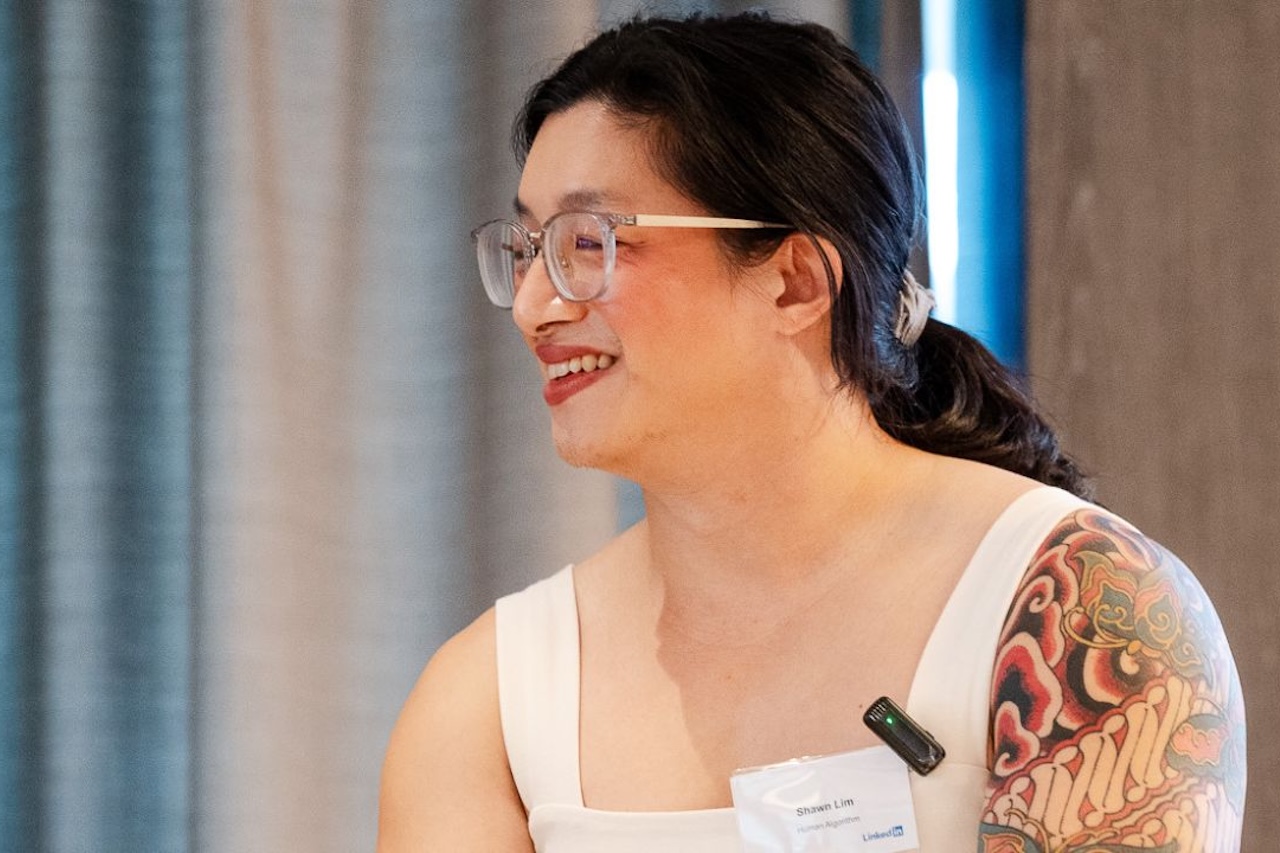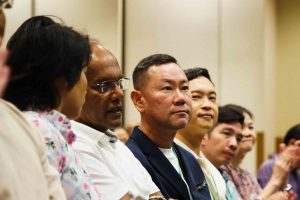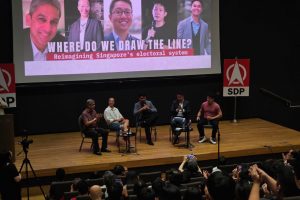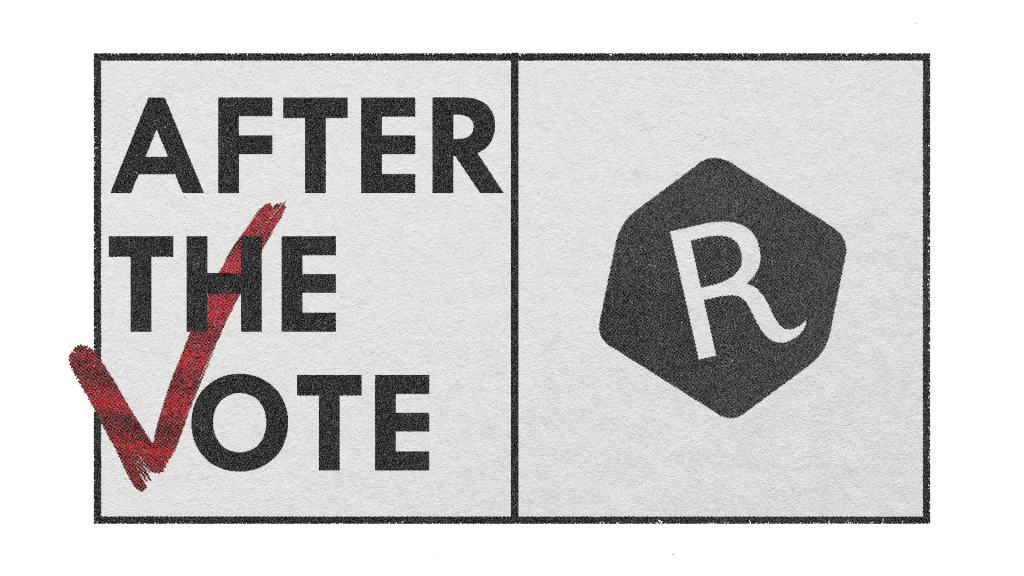
‘After the Vote‘ is a RICE Media series where Singaporeans from all walks of life share their hopes for Singapore—the changes they envision, the values they want to uphold, and the future they want to help shape.
As GE2025 approaches, we take a step back from the antics and theatrics to explore the bigger picture: What kind of Singapore are we building beyond this election? Through these conversations, we uncover the aspirations and concerns shaping the nation in the next five years and beyond.
The views in ‘After the Vote’ are those of the interviewees and based on their experiences; they do not reflect the publication’s stance.
All images courtesy of Shawn Lim.
At the age of 16, Shawn Lim had already been arrested twice. No stranger to detention and canings in school, he was even sent to a boy’s home at one point.
Looking back on his tumultuous teen years, Shawn, now 33, theorises that he was acting out because he was “a queer kid in an environment that didn’t feel safe for softness”. Over the years, however, he’s come to realise that we don’t have to fit into boxes others create.
Shawn, who is gender-fluid and pansexual, is now a fierce advocate for the LGBTQIA+ community. But his quest for a more inclusive Singapore extends beyond that. As the parent of a two-year-old with global developmental delay, issues of diversity and inclusion are also close to his heart.
And he walks the talk. He hosts The Human Algorithm Podcast, where he amplifies the voices of local creatives in underrepresented communities. He was also a Red Dot for Pink Dot (RD4PD) business leader in 2023 and 2024, helping to raise money for the annual pride event. And for nearly five years, he’s been volunteering at Workers’ Party Meet-The-People sessions and community initiatives in Sengkang.
With the 2025 General Election around the corner, RICE is taking a longer-term view towards the Singapore we’re collectively building. And Shawn has plenty to say about what inclusion truly looks like for those who don’t fit neatly into Singapore’s existing boxes.
What is one change you hope to see in Singapore by 2030 that would make life meaningfully better for people like you?
By 2030, I hope Singapore embraces inclusive design and policy in all public spaces, starting with something as basic yet essential as gender-neutral bathrooms.
For many of us who are gender-diverse, choosing a restroom should not involve anxiety, stares, or the fear of being confronted. This simple change would signal something bigger: Singapore is willing to create a society where everyone feels seen, safe, and respected.
Living authentically in a conservative culture has not been easy, but I have never backed down from it.
I want my daughter, who is neurodiverse, to grow up in a Singapore where authenticity is not policed but celebrated and where diversity in gender, identity, and expression is reflected in the systems we interact with every day.
What’s a challenge Singapore must overcome in the next six years to stay a place where people want to live and thrive?
Singapore must overcome its tendency to view differences through a lens of discomfort or suspicion.
The challenge is cultural. We need to shift from mere tolerance to true acceptance of diverse identities, especially within the LGBTQIA+ communities.
Many still face microaggressions or feel like they have to explain or justify their existence. For Singapore to remain a place where people can thrive, it must make space for all ways of being, not just those that fit neatly into existing boxes.
Thriving is impossible without belonging, and belonging starts with empathy, representation, and the courage to question inherited norms.
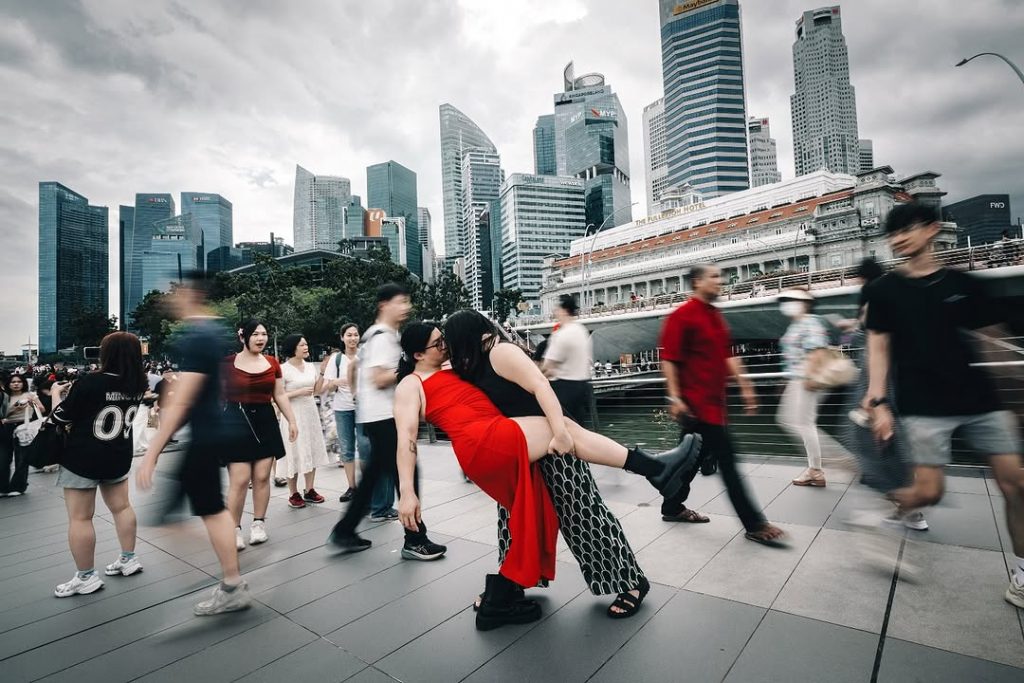
If you could introduce a new national priority for Singapore, what would it be, and why?
I would introduce a national priority around queer-affirmative mental health care. The need for safe, inclusive, and well-funded support systems for LGBTQIA+ individuals is urgent.
Many queer people face stigma, identity trauma, and discrimination.
A 2022 report by advocacy organisations Sayoni and OutRight International documented how many LGBTQ+ individuals in Singapore, especially LBTQ women, experience rejection, abuse, and even sexual violence from their own families. These wounds create lasting emotional and psychological trauma, often exacerbated by the invisibility of our stories in public discourse.
That trauma shows up in our mental health. A survey by Calm Collective Asia found that nearly 60 percent of LGBTQ+ individuals report their mental well-being has been negatively affected by discrimination, and transgender folks often face even more hostility, from verbal slurs to physical attacks. I’ve felt that fear myself: the hesitation to be fully seen, the fear that openness could cost you family, safety, or belonging.
Even when we try to move forward in life, discrimination doesn’t stop at the workplace door. Pink Dot SG reported that nearly 69 percent of LGBTQ+ workers in Singapore have experienced some form of harassment or bias during hiring or employment. Despite calls for inclusive legislation, sexual orientation and gender identity are still not explicitly protected under workplace fairness laws, a stark gap that leaves many of us vulnerable and without recourse.
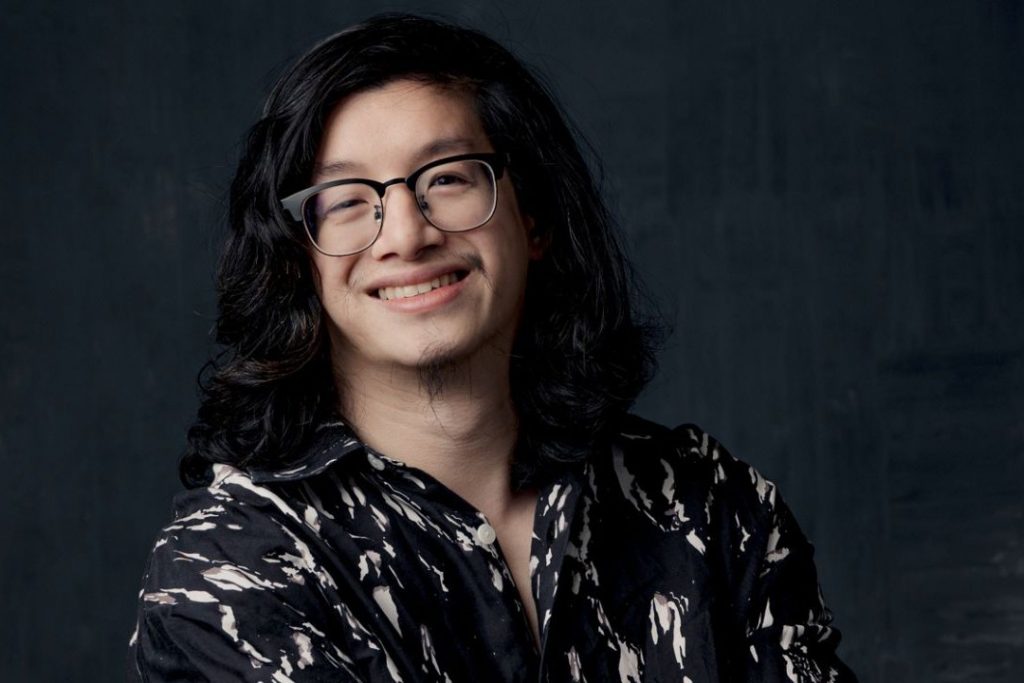
Housing inequality is another issue I’ve encountered through conversations with others in the community. In Singapore, unmarried queer individuals can only apply for public housing at 35 and even then, with fewer subsidies and more restrictions. For those hoping to live with a partner or simply find secure housing, it can feel like the system isn’t built for us at all.
One of the most heartbreaking yet under-discussed areas is sexual violence. LGBTQ+ survivors often face unique barriers to reporting out of fear of being outed, or a lack of institutional understanding or support. AWARE Singapore has highlighted how many queer survivors stay silent because they don’t trust the systems meant to protect them.
However, current resources are either inaccessible or underfunded. Organisations like The T-Project and Oogachaga do crucial work but often rely on donations, lacking systemic backing.
Making queer-affirmative care a national priority is about clearly and compassionately saying that every life matters and deserves to be cared for in its wholeness. With proper funding and nationwide training, we can create safer spaces for healing, growth, and long-term well-being.
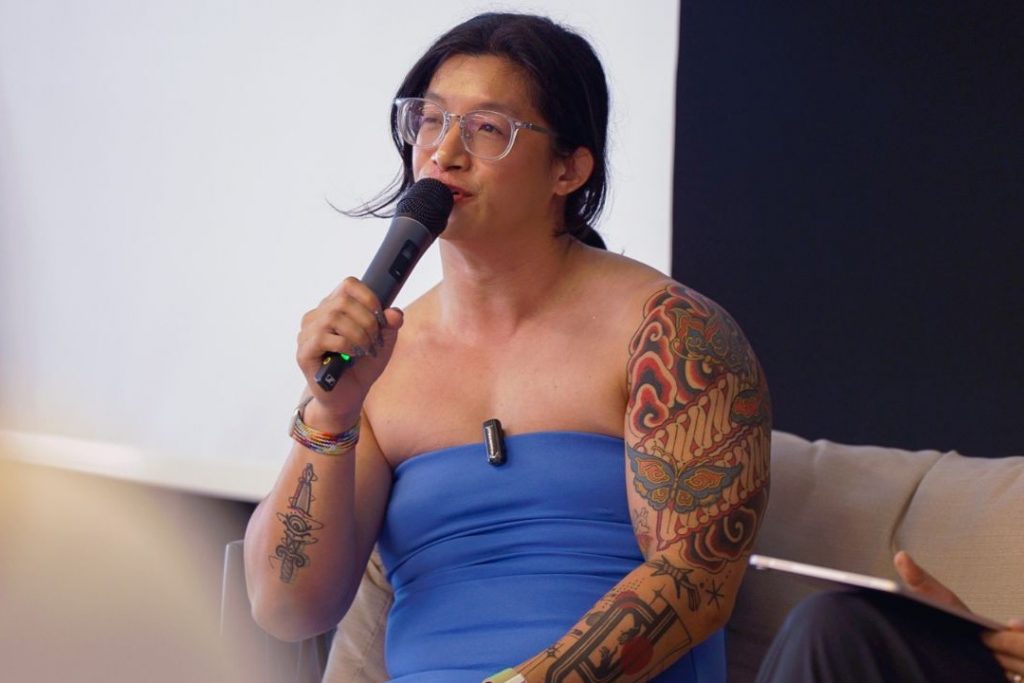
What small shift—policy or mindset—could make a big difference in the daily lives of your community?
A small but powerful shift would be to normalise asking and respecting pronouns. This simple act of recognition can profoundly impact someone’s sense of safety and belonging.
I believe it starts with small signals in safe spaces. We don’t need a top-down policy to begin; we just need people who are willing to lead with empathy. Adding pronouns to email signatures, LinkedIn bios, and event name tags might seem like small acts, but they are deeply meaningful. It tells others: “You don’t have to explain yourself here, you are already seen.”
Workplaces can make a big difference, especially in onboarding processes or internal communication guidelines. I would love to see team leads model inclusive intros like, “Hi, I’m Shawn, and I use they/them pronouns.”
It sets the tone without forcing anyone. The key is normalising, not mandating.
In schools, panels, and public events, offering the option to share pronouns at the start or even including a brief line in registration forms is a gentle, affirming first step. And when someone gets it wrong, the response should not be shame, it should be curiosity, learning, and care. That’s how culture shifts.
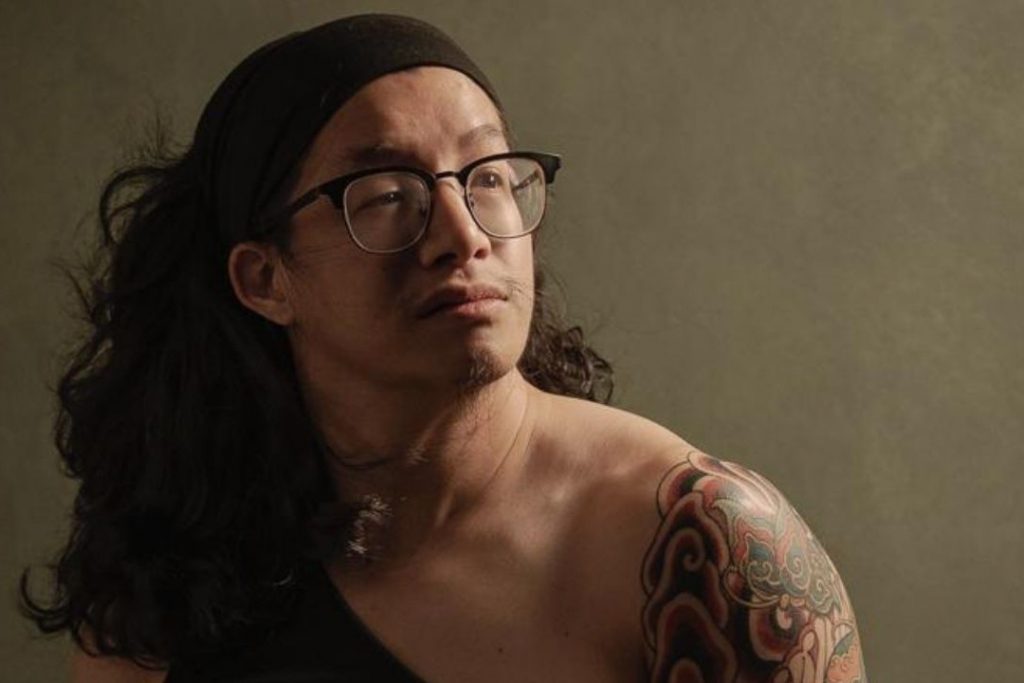
For people like me, who identify as gender-fluid and don’t always fit into traditional gender norms, this respect means everything.
One major hurdle I still have is using the bathroom. Without gender-neutral options, I often rely on accessible toilets when possible. While I prefer to use the men’s bathroom, the stares and even cleaners’ attempts to chase me out can be unnerving.
For example, I was at Raffles City and the cleaners were in the accessible toilets. I decided to use the male bathroom, one of the cleaners chased me in and tried to tell me that I was in the wrong bathroom. To diffuse the situation, I left and found another toilet.
My wife and friends suggest I use the women’s bathroom when feminine-presenting, but I remain conscious of others’ comfort, particularly ciswomen who might feel uneasy sharing the space.
Instead of assumptions, imagine a culture where curiosity is paired with kindness, and diversity is met with openness, not discomfort.
This mindset shift would help young people grow up knowing their identity is valid, regardless of labels. Empathy begins where assumptions end, and creating room for that empathy in everyday interactions could transform countless lives.
Singapore moves fast. What’s one thing we need to slow down for?
We need to slow down to truly listen—not just to respond, but to understand.
In our fast-paced drive for productivity and progress, we often forget to hold space for the quieter, more personal stories that challenge the status quo or sit outside the norm.
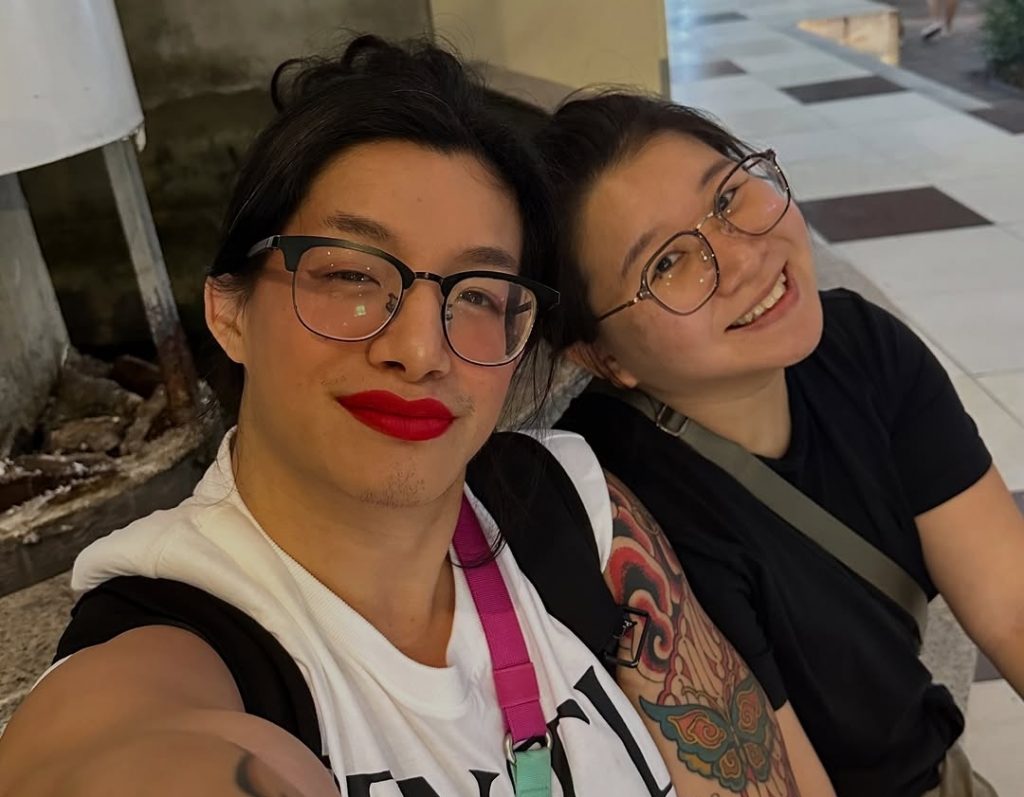
As someone who presents differently depending on the day and navigates life outside of traditional expectations, I have learned how powerful it is when someone simply pauses to listen without judgment.
To build a compassionate, future-ready society, we must first listen long enough to know who we are building it for.
What’s one thing about Singapore you’d want to protect for the future?
I want to protect the growing spaces of empathy and inclusion emerging in Singapore, like the Free Community Church and Pink Dot, where people can show up as themselves without fear. These are the seeds of a more compassionate society.
They represent not just acceptance but a celebration of difference. I want my daughter to grow up in a Singapore where such spaces are not fringe but part of the mainstream.
Protecting these safe havens means defending the right to be different and vulnerable and building a community based on shared humanity rather than conformity.
In 2030, what kind of Singapore would you be proud to call home?
In 2030, I would be proud to call Singapore home if it’s a place where my daughter does not have to unlearn shame, where gender and neurodiversity are not just accepted but celebrated, and where being true to yourself is the norm, not the exception.
A Singapore where inclusive values are reflected in policies, schools, media, and everyday life. I imagine a city honouring stories like mine, not as exceptions but as threads in the national fabric.
That kind of Singapore would be one where authenticity is safe, not brave, and that is the kind of future worth building.

